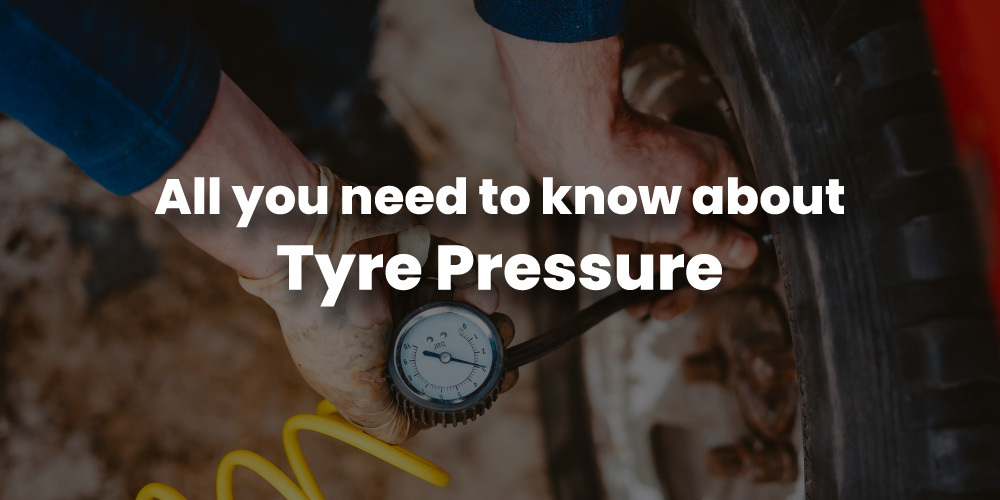
Maintaining your car is the most important thing you can do from a safety point of view as well as a cost standpoint. The easiest way to maintain your car starts with maintaining the tyres of your car, which is both quick and inexpensive.
The Recommended Air Pressure
Most passenger cars do recommend that the tyre's air pressure should be between 30 psi to 40 psi. It also varies according to the weather we are driving the car in because during summers the heat already prevails in the environment while during winters the air pressure should be slightly low because when the tyres roll along the road, the friction between them generates heat, increasing the temperature and the air pressure.
A car’s tyre pressure depends on the tyre’s size itself and all brands have a different recommended PSI level for their tyres. If you want your tyres to serve you for longer and keep you safe while driving, you should be checking your tyre pressure and adjusting it every second week, if not, at least once a month. We recommend that you should always check your tyre pressure before winters as well as before summers and do the recommended changes. If you are driving long distances regularly, we suggest you to fill your tyres with nitrogen as it helps in keeping the tyre temperature lower than when it is filled with regular air.
Most of the time the recommended air pressure varies by the type of car according to the manufacturers’ recommendation which is printed on the label in the car. The label might be on the edge of the door or in the glove box but if the label does not exist, the tyre pressure should be around 32PSI to 40PSI.
Learn more: how to check tyer tread depth: stay safe of the road
Benefits of Maintaining Tyre Pressure
Better Fuel Average - The most important thing that most people see before buying a car is the average, the best way of maintaining the average of a car is maintaining the tyre pressure.
Less Wear - It is well said that if the tyre pressure in a car is at the rubber, the rim of the tyre won't work well because the groove and the ridges in the tyre will maintain a perfect balance with the road.
Safety - Vehicle handling is dependent upon the tyre pressure; if the pressure is low or high, the traction can decrease which would increase the possibility of an accident. The right amount of tyre pressure would handle the vehicle like it’s supposed to and would reduce the chances of an accident.
Checking the Tyre Pressure
Checking the tyre pressure is one of the major parts when it comes to maintaining the tyre. We have mainly three options through which we can check our tyre pressure:
1. Stick Type Pressure Gauge
2. Dial Pressure Gauges
3. Digital Pressure Gauges
No Pressure Gauge? No worries!
There are many ways to check the tyre pressure when you don’t have a tyre gauge:
● Weight on Vehicle - If the tyre pressures itself towards the road while you load any weight into the vehicle, you need to inflate them.
● Feeling the Ride - If you are low on tyre pressure you can feel it during your drive, if the left side tyres are low on pressure, the car tends to move towards the left and similarly towards the right.
● Just look at the Wheels - If you see your tyre flattening or sagging on the road, you need to put more air into your tyre.
Low Tyre Pressure? What will Happen?
When we drive on tyres which are under inflated this is proven to be the biggest cause of tyre failure it can also lead to other problems such as the tyres can hear out more rapidly, it will be handled poorly and it can reduce the efficiency of the fuel.
High Tyre Pressure? What will happen?
When we drive on tyres which are over inflated this is proven to be more effective to damage from road regularities and they also result in a bumpy ride. Over inflated tyres are equally dangerous as that of the under inflated tyres so it is recommended that the tyre pressure should be apt to have the best driving efficiency and experience.
How does temperature affect tyre pressure?
For most passenger vehicles, the tyre pressure will fall by one psi for every 10°F (5.6°C) dip in temperature. The variation in tyre pressure with temperature is increased to 2 psi for every 10°F when it comes to commercial truck tyres, which are frequently inflated to above 80 psi (twice as much as passenger vehicle tyres).
Simply keep in mind this general rule of thumb and keep in mind that you will need to check your tyre pressure during various seasons or a rapid shift in temperature. With EverTyres you can buy all the variants and sizes of tyres made out of the best quality.


